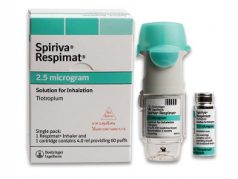Actigall

Actigall
- In our pharmacy, you can buy Actigall without a prescription, with delivery in 5–14 days throughout Australia. Discreet and anonymous packaging.
- Actigall is used for dissolving non-calcified gallstones and treating primary biliary cholangitis. The drug works by reducing cholesterol saturation in bile and promoting the dissolution of gallstones.
- The usual dosage for adults is 300 mg twice daily for specific indications.
- The form of administration is a capsule.
- The effect of the medication begins within 1–3 months for gallstone dissolution.
- The duration of action can last up to 24 hours.
- Do not consume alcohol while taking this medication.
- The most common side effect is mild gastrointestinal symptoms, such as diarrhea and nausea.
- Would you like to try Actigall without a prescription?
Basic Actigall Information
- INN (International Nonproprietary Name): Ursodeoxycholic Acid
- Brand names available in Australia: Actigall, Urso
- ATC Code: A05AA02
- Forms & dosages: Capsules 300 mg, Tablets 250 mg
- Manufacturers in Australia: Various local and international suppliers
- Registration status in Australia: Prescription only
- OTC / Rx classification: Prescription medicine
Critical Warnings & Restrictions
For patients considering Actigall, it’s essential to understand the safety considerations, particularly for vulnerable groups. The elderly, pregnant women, and those with chronic illnesses should undergo thorough evaluations by healthcare professionals prior to use.
High-Risk Groups (Elderly, Pregnancy, Chronic Illness)
Elderly patients may have various comorbidities that could influence the effectiveness and safety of Actigall. Proper medical assessments are crucial to prevent adverse effects. Pregnant women also need careful consideration, as the risks versus benefits should be evaluated by their healthcare providers. Those with chronic conditions, especially liver issues, must exercise caution, as Actigall is contraindicated in severe liver disease.
Interaction With Activities (Driving, Workplace Safety Under Australian Law)
After administration of Actigall, patients need to be mindful of their capacity to engage in activities such as driving or operating heavy machinery. The medication can occasionally cause side effects like gastrointestinal disturbances, which could impair their ability to perform these tasks safely.
Q&A — “Can I Drive After Taking It in Australia?”
In general, if Actigall has caused no adverse reactions, patients are typically safe to drive. However, if they experience dizziness or drowsiness, it is best to refrain from driving and consult with a medical professional.
Usage Basics
Actigall is recognised medically with a specific name and availability across Australia, making it accessible to those who require it.
INN, Brand Names Available in Australia
The International Nonproprietary Name (INN) for Actigall is Ursodeoxycholic Acid. In Australia, it is most commonly referred to as Actigall, along with other brand names like Urso.
Legal Classification (TGA-Approved, PBS-Listed)
Actigall holds a valid TGA approval, classified as a prescription-only medication. It is also listed on the Pharmaceutical Benefits Scheme (PBS), making it accessible for eligible patients under government subsidised programs, which can significantly reduce costs for those in need.
Dosing Guide
When it comes to dosing, patients must adhere to specified regimens based on their conditions, while adjustments may be necessary for patients with coexisting health issues.
Standard Regimens (PBS Reference Dosing)
The standard dosing for patients with gallstones typically ranges from 8 to 10 mg/kg/day, often necessitating dosages like 300 mg taken twice a day, depending on the patient's weight and individual circumstances. For primary biliary cholangitis, the typical dosage is around 13 to 15 mg/kg/day, spread throughout the day, either in tablets or capsules.
Adjustments for Comorbidities
Elderly patients or those with liver impairment may need dose adjustments and closer monitoring. This is vital to ensure safety and minimise side effects. Always consult healthcare providers for personal recommendations.
Q&A — “What If I Miss A Dose?”
If a dose of Actigall is missed, it should be taken as soon as remembered, unless the next scheduled dose is nearby. In such cases, the missed dose should be skipped, and the regular dosing schedule resumed. Patients are advised against doubling doses to make up for missed intake.
Interaction Chart
Understanding interactions with food and other medications can be essential for anyone taking Actigall. Here’s an overview of what to keep in mind regarding diet and drug interactions.
Food and Drinks (Alcohol, Coffee, Australian Diet Context)
Common Australian foods and drinks like coffee and certain dietary staples do not associate with significant interactions affecting Actigall’s safety or efficacy. However, alcohol consumption should be moderated as it may amplify potential side effects like gastrointestinal discomfort.
Common Drug Conflicts
Several medications might conflict with Actigall. Some noteworthy examples include:
- Certain drugs used for cholesterol management
- Some anti-inflammatory medications
- Drugs that affect liver metabolism
Patients should always inform their healthcare provider about all medications they are currently taking to avoid complications.
User Reports & Trends
Feedback from Australian patients using Actigall often appears on health forums and review sites, providing insights into user experiences.
Overall satisfaction rates hover around a reasonable level, with many patients reporting successful management of their conditions, particularly gallstone dissolution. However, some patients note concerns about gastrointestinal side effects, which underscores the importance of individual responses to therapy.
Access & Purchase Options
Acquiring Actigall in Australia is straightforward, with multiple options available for patients.
National Chains (Chemist Warehouse, Priceline, TerryWhite)
Major pharmacy chains such as Chemist Warehouse, Priceline, and TerryWhite stock Actigall, with accessible price points that vary based on location and store promotions. Cost-effective purchasing options are often available through these retailers.
Online Pharmacies and Telehealth E-Prescriptions
Thanks to advancements in telehealth, many patients can receive e-prescriptions to purchase Actigall from online pharmacies. This provides added convenience, especially for those managing their conditions from home.
Mechanism & Pharmacology
Simplified explanation
Actigall, primarily composed of ursodeoxycholic acid, plays a crucial role in the management of gallstones and certain liver conditions.
It works by altering the composition of bile acids in the body.
When bile acids are modified, they help promote the dissolution of non-calcified cholesterol gallstones.
By improving bile flow, Actigall reduces the potential for gallstone formation, especially during rapid weight loss.
Furthermore, it aids in protecting liver cells from bile acid toxicity, which is essential for those with primary biliary cholangitis.
Clinical terms
The pharmacological properties of Actigall can be articulated with specific clinical jargon:
- Bile acids: Essential digestive components aiding in lipid absorption.
- Hepatoprotective: Refers to the protection of liver cells from damage.
- Cholagogue: Promotes the discharge of bile from the liver.
These terms underscore the drug's multifaceted role in treating liver diseases and gallstones.
Indications & Off-Label Uses
Approved indications by TGA
Actigall is recognised by the Therapeutic Goods Administration (TGA) in Australia for several therapeutic uses:
- Dissolving non-calcified cholesterol gallstones.
- Prevention of gallstones in patients undergoing rapid weight loss.
- Long-term treatment for primary biliary cholangitis.
Off-label uses in Australian clinical practice
While primarily indicated for gallstone management and liver protection, emerging trends illustrate off-label uses of Actigall.
Some healthcare practitioners are exploring its effects in conditions such as:
- Fatty liver disease, for its potential hepatoprotective properties.
- Chronic inflammatory conditions, where its immunomodulatory effects can be beneficial.
The flexible application of Actigall in various settings reflects its growing importance in Australian clinical practice.
Key Clinical Findings
Recent studies from 2022 to 2025, both in Australia and internationally, have provided valuable insights into the efficacy and safety of Actigall:
- A large-scale Australian trial reported a significant reduction in gallstone recurrence rates among patients treated with Actigall post-bariatric surgery.
- International research highlighted its effectiveness as a first-line agent for primary biliary cholangitis, showing enhanced liver function parameters.
These findings consistently support the drug's role in healthcare settings, bolstering its prescription among various patient populations.
Alternatives Matrix
PBS-listed alternatives comparison table
| Medication | Indication | Dosage | Considerations |
|---|---|---|---|
| Actigall | Gallstones | 300 mg twice daily | Best for non-calcified stones |
| Chenodiol | Gallstones | Varies | Higher hepatotoxicity risk |
| Obeticholic Acid | Biliary cholangitis | Varies | Newer alternative |
Pros and cons checklist
- Pros of Actigall: Effective for non-calcified gallstones, hepatoprotective effects, well tolerated.
- Cons: Not effective on calcified stones, requires monitoring during use.
In contrast, Chenodiol may risk liver toxicity, while Obeticholic Acid offers alternatives for patients with biliary cholangitis.
Common Questions
What should patients know when considering Actigall? Here are common queries:
- Is Actigall safe for children? Generally, it’s rarely justified due to insufficient data on safety and efficacy.
- Can pregnant women use Actigall? Caution is advised; the risks versus benefits must be assessed carefully.
Explaining how patients can seamlessly integrate Actigall into their treatment plans is critical for effective management.
Suggested Visual Content
To enhance patient understanding, consider creating:
- A PBS pricing infographic for Actigall and its alternatives.
- A pharmacy network map showing points of access for patients.
Visual aids can significantly improve information retention and empower patients in their healthcare choices.
Registration & Regulation
TGA approval
Obtaining registration from the Therapeutic Goods Administration (TGA) is a critical step for the availability of Actigall in Australia. The TGA requires extensive evidence of safety, efficacy, and quality for prescription medications. This process includes the submission of clinical trial data, manufacturing details, and product stability information.
First, companies submit an application through the TGA's online system. Following an initial evaluation, the TGA conducts a comprehensive review, which may involve consultations with external experts. If successful, the product receives a registration number that indicates it meets Australian health standards.
Maintaining compliance with TGA regulations continues post-approval. Companies must report any adverse events and may need to update labelling or dosages as new information becomes available.
PBS subsidy details
The Pharmaceutical Benefits Scheme (PBS) plays a significant role in making Actigall accessible to Australian patients. A PBS listing allows patients to access Actigall at a subsidised rate, reducing the out-of-pocket cost significantly.
For those eligible, this means that the price at the pharmacy is considerably lower than the unsubsidised rate. This is particularly important for individuals needing long-term treatment for conditions like primary biliary cholangitis or for gallstone management. The PBS listing takes into account clinical necessity, ensuring that patients receive the treatment they need without undue financial burden.
Storage & Handling
Household storage in Australian climate
Storing Actigall correctly is vital for maintaining its effectiveness, especially considering Australia's diverse climate. The product should be kept in a cool, dry place below 25°C, away from direct sunlight and excessive humidity.
Some practical storage tips include:
- Store the medication in its original packaging to protect it from moisture.
- Avoid bathroom storage where humidity levels fluctuate.
- If not used frequently, consider a storage location that maintains consistent temperatures.
Regularly checking expiry dates is also important; expired medications may not only be ineffective but could pose health risks.
Cold-chain handling for pharmacies
For pharmacies distributing Actigall, strict temperature control is crucial. It is essential to maintain the cold chain during storage and transportation to prevent degradation of the medication. This involves:
- Storing Actigall in temperature-controlled environments, ideally between 2°C to 8°C, if required for specific formulations.
- Regular monitoring of storage conditions to ensure compliance with regulatory requirements.
- Utilising temperature logging devices during transport to provide evidence of compliance.
Pharmacists must be trained in these handling procedures to guarantee that patients receive effective and safe medications.
Guidelines for Proper Use
Australian pharmacist counselling style
Pharmacists in Australia play a pivotal role in ensuring that patients understand how to use Actigall properly. The counselling style should be clear, supportive, and informative, focusing on enabling patients to manage their health effectively.
Key elements of the counselling approach include:
- Explaining the purpose of Actigall and its proper dosage.
- Discussing potential side effects and what to do if they occur.
- Encouraging patients to adhere to prescribed dosages and explain the importance of continued treatment.
- Offering information on lifestyle changes that complement treatment, especially in the context of gallstone management.
A supportive environment will enhance patient engagement and encourage adherence to the treatment plan.
Patient advice from PBS and national health authorities
Health authorities, including the PBS, provide essential advice for patients prescribed Actigall. This guidance often covers the importance of understanding the treatment course, potential benefits, and risk factors involved with the medication.
Patients are advised to:
- Be vigilant about reporting any side effects to their healthcare provider.
- Maintain regular follow-ups to monitor their condition and response to treatment.
- Stay informed on the latest guidelines and recommendations related to Actigall use.
Accessing reliable information from healthcare professionals can empower patients to make informed decisions about their health and treatment options.
| City | Region | Delivery time |
|---|---|---|
| Sydney | New South Wales | 5–7 days |
| Melbourne | Victoria | 5–7 days |
| Brisbane | Queensland | 5–7 days |
| Perth | Western Australia | 5–7 days |
| Adelaide | South Australia | 5–7 days |
| Hobart | Tasmania | 5–9 days |
| Darwin | Northern Territory | 5–9 days |
| Canberra | Australian Capital Territory | 5–7 days |
| Gold Coast | Queensland | 5–9 days |
| Newcastle | New South Wales | 5–9 days |
| Central Coast | New South Wales | 5–9 days |
| Cairns | Queensland | 5–9 days |








